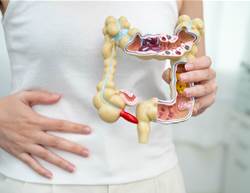Injuries, infections and headaches can leave you asking an important question: Should I go to the emergency room?
Mishaps happen, and our bodies can behave in unexpected ways. When unusual symptoms strike, it’s not always easy to know whether to head straight to hospital or wait it out at home.
Naturally, you don’t want to overreact—but you don’t want to miss something serious either. Are you better off heading to emergency, booking a GP appointment or seeing how things look after a rest?
To help clarify what’s worth worrying about, we asked board-certified emergency physician and medical director Dr Ryan Stanton to walk us through the most common symptoms that land people in the ER—and when it’s actually the right move.
Headache
Some headaches are more concerning than others. The three most common types are tension headaches, which cause a dull ache on both sides of the head; cluster headaches, which create sharp pain on one side; and migraines, which come with throbbing pain and additional symptoms like nausea and sensitivity to light. These generally don’t require a visit to the emergency department and can often be managed with rest, hydration and over-the-counter medication.
However, if the headache is sudden and intense, it could be a sign of something more serious. “Is it the worst headache of your life?” asks Dr Stanton. “Did it come on suddenly, like you were struck by lightning or hit in the head with a hammer?” These questions help emergency doctors determine whether a patient may be experiencing a subarachnoid haemorrhage—a type of stroke that causes sudden, severe head pain. Headaches that come with fever, neck pain, stiffness or a rash could also point to meningitis and require immediate attention.
Abdominal Pain
Abdominal pain is one of the most common reasons for emergency department visits. It can be caused by a wide range of conditions—some serious, like appendicitis, and others less concerning, such as viral gastro. The challenge lies in determining which pain signals something urgent.
Dr Stanton recommends seeking emergency care if the pain is intense and localised, particularly in the lower right or upper right areas of your abdomen. “This could hint at an appendix or gallbladder issue that may require immediate surgery,” he says. You should also go to the doctor if your abdominal pain is severe and sudden, if you’re unable to keep down food or fluids, or if you notice blood in your stool.
Chest Pain
Chest pain is another major reason people head to the emergency department—and for good reason. Cardiovascular disease remains one of the leading causes of death in Australia, and chest symptoms should always be taken seriously. “Heart attacks are at the top of the list due to their frequency and potential risk,” says Dr Stanton.
You should go to hospital if you’re experiencing chest tightness along with shortness of breath, sudden fatigue, or pain that radiates to your neck, jaw or arms—especially if you have risk factors such as age, family history or a sedentary lifestyle. “This is not a time for the walk-in or urgent care clinic,” Dr Stanton adds. “They will just take a look and send you to the ER.”
Infection
Infections can range from mild to life-threatening, with something as common as a cold on one end of the spectrum and conditions like sepsis on the other. Most infections are viral, which means they won’t respond to antibiotics and can usually be managed at home with rest, fluids and over-the-counter medications. However, some symptoms indicate the need for immediate medical care.
“You want to show up at the ER if there are any concerns, such as confusion, lethargy, low blood pressure or inability to [keep down] fluids,” says Dr Stanton. These symptoms may suggest a more serious infection such as sepsis, pneumonia or meningitis. Even in less severe cases, you “may just need a little emergency room TLC—such as medications, … fluids or possibly antibiotics—to turn the corner,” he adds.
Bloody Stools or Urine
Seeing blood in your stool or urine is never considered normal. Even if the situation doesn’t feel urgent, it’s important to book an appointment with your GP as soon as possible to find out what’s causing it and what treatment is needed.
You should head to the emergency department if there’s a significant amount of blood or if you’re also experiencing symptoms like fever, rash, fatigue or severe pain. “Blood in the urine is usually caused by some kind of infection, such as a UTI, kidney infection, or kidney stones,” says Dr Stanton. “Blood in the stool is often benign, but it can be the sign of something very dangerous.” Possible causes include haemorrhoids, fissures, inflammation, infections, ulcers or even bowel cancer.
Difficulty Breathing
Shortness of breath is one of the most common reasons people present to emergency departments. According to Dr Stanton, the most frequent causes include asthma, chronic obstructive pulmonary disease (COPD) and respiratory infections like pneumonia.
“If you can’t breathe, get to the ER,” Dr Stanton says. Breathing difficulties should always be taken seriously and assessed by a medical professional, regardless of age or underlying health conditions.
Cuts, Bumps, and Falls
From kitchen mishaps to tripping on stairs, accidental injuries are one of the most common reasons people present to emergency departments. While many cuts and bruises can be safely treated at home, others need professional attention.
You should go to hospital if the injury is deep enough that you can see muscle, bone or tendon. In these cases, you’ll likely need more than a bandage to prevent further complications. “[Injuries] are fraught with potential secondary complications, like infection, loss of function, and ischaemia (reduced blood flow),” says Dr Stanton.
Vomiting
Vomiting is a common symptom with many potential causes, including food poisoning and viral gastro. Most of the time, it can be managed with rest, hydration and follow-up care from your GP. But in some cases, vomiting can be a sign of something more serious.
Seek urgent care if your vomit is bloody, dark green or accompanied by severe abdominal pain, as this may indicate a bowel obstruction. You should also go to emergency if you’re unable to keep fluids down and are showing signs of dehydration. “If you are unable to keep anything down, you will need to get medication or treatments to help you stay hydrated,” says Dr Stanton, who notes that children can become dehydrated much more quickly than adults.
Fever
Fever is a natural immune response—it’s often your body’s way of fighting off an infection. “Rarely is a fever anything other than an indication that you are ill,” explains Dr Stanton. However, some fevers signal more serious underlying conditions and should not be ignored.
You should seek medical attention if a fever is accompanied by extreme fatigue, confusion or other unusual symptoms. Dr Stanton says he’s most concerned about fevers that make children weak and lethargic, fevers in adults that cause confusion or disorientation, and those that appear alongside headaches or neck stiffness.
Loss of Function
Whether it’s sudden numbness in your legs, a slack feeling in your face, or difficulty controlling your bladder, any loss of function is a red flag that should never be ignored. It doesn’t matter if it comes on gradually or all at once—when a part of your body stops working as it should, it’s time to act.
“Any loss of function requires immediate evaluation,” says Dr Stanton. Two of the most common causes are physical trauma and stroke, both of which require urgent care. “When something is not working, don’t try to ‘sleep it off’,” he adds. “If it doesn’t work, there is a reason. And we need to see if we can diagnose, reverse, or prevent ongoing problems.”
The Bottom Line
When in doubt, talk to a doctor. “Any time you have a concern or emergency, it’s always better to get checked than to wait until the problem escalates,” says Dr Stanton.
This list isn’t exhaustive. According to the National Institutes of Health (NIH), you should also go to hospital if you:
- Inhaled smoke or poisonous fumes
- Consumed a toxic substance or overdosed on medication or drugs
- May have broken a bone
- Are having seizures
- Suffered a serious burn
- Had a severe allergic reaction and are experiencing swelling, hives or difficulty breathing
- Are having suicidal thoughts
Your health is too important to second-guess—if something feels wrong, it’s always safer to get checked.










